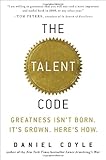57 Meditations on Kicking @$$ in Business and Life"4.8/5 stars" on Amazon
5 Easy Tips On How To Be Successfully Prepared (From An NFL Coach)
Tweet 3 Comments[My new friend Umberto Leone was an Assistant Coach in the NFL for the Cleveland Browns and Oakland Raiders; he wrote the article on preparation below (with some editing for space by me).]
As U.S. President Abe Lincoln once said about the importance of being prepared:
“If I had 6 hours to chop down a tree, I’d spend 4 hours sharpening my axe.”

Coach Leone corralling the Cleveland Browns
As a former Assistant Coach in the National Football League for five seasons, as well as three years assisting on the collegiate level, my work-life revolved around preparation.
I learned some valuable tips & pointers on preparedness and look forward to sharing them with you.
Preparation Tip #1: Teamwork
You hear the word “teamwork” thrown around the sports world all the time. Many athletes thank their teammates for the individual awards they receive.
Not only is teamwork a requirement on the field of play, within the preparation process teamwork is crucial.
As a coaching staff, each of the preparation duties is shared amongst the entire staff.
For example, one coach may be responsible for the 1st and 2nd down game plan while another coach’s responsibility is 3rd down and 2 minute.
Another coach may have the Red Area and Goal Line situations.
You must rely on the successful work of each individual coach in order for the whole coaching staff to be properly prepared.
Teamwork Preparation Questions For You:
- Do you efficiently spread responsibilities among your team?
Do they have assignments as specific as who’s responsible for 1st down decisions or what you do when you’re close to the “Goal Line?
Preparation Tip #2: Ask Yourself the “What If” Questions
To properly prepare you have to be able to ask and answer the appropriate “what if” questions; this helps you increase and broaden your mindset.
An increased and broadened mind allows you to think about a variety of possibilities and how to prepare for them all.

Coach Leone (on right) talks things over with Coach Mel Tucker
In football terms, some examples of the “what if” questions we asked ourselves each week to help us prepare:
- “What if they start using a no huddle offense”?
- “What if they fake a field goal or punt”?
- “What if they give us a trick play “?
- “What if they bring a blitz that we have never seen before”?
- “What if its 4th and 1 and they go for it”?
- “What if its 4th and 5, we are losing by 3 points with the ball at the 35 yard line, 45 seconds left in the game and we have no timeouts left – do we kick a field goal or go for the first down”?
- “What if our QB gets hurt”?
When you ask yourself the appropriate “what if” questions, it will deepen and broaden your mind and thus drastically improve your preparation level.
What-If Preparation Questions For Your Team:
- Does your team discuss “What-If” contingency plans?
- Are you prepared in the event a key person on your team resigns?
- Are you prepared for your largest customer or partner leaving you?
Preparation Tip #3: Role-Play
In football it was vital for us to think as our opponent would think.
We’d study ourselves in a way that the opponent would: understanding our weaknesses, knowing the areas that they would attack, and being able to prepare accordingly.

Brandon McDonald runs at Coach Umberto
For example, we prepared for the following game by studying our opponent on film (and over time collecting a huge database of their plays).
During practice our Scout team would utilize those plays and run them against our own team.
At times we would run the play a little differently – attacking the weak area of our team in a way that would make the opponent’s play more successful.
For example, if we are playing the Eagles, our scout team wouldn’t have a slow non-athletic QB: we’d put the closest version to Michael Vick we had on our team to better role play that position.
Role-Play Preparation Questions For You:
- Do you have a database of plays you and your competition rely on?
- Do you ever role-play any scenarios in your business?
- If you have to have to fire someone, do you use a colleague to role-play the script with them beforehand?
- If you are giving an important speech, have you ever tried practicing it aloud to another person whose opinion you trust?
Preparation Tip #4: Research & Study Hard
Though we only played one game every week, the amount of preparation that went into every game was astounding.
From the Sunday evening following the afternoon game, to the Saturday night team meal and sometimes even until the Sunday morning breakfast, we were preparing.
Legendary coach Joe Paterno once said
“The will to win is important, but the will to prepare is vital”. As NFL Coaches, we all definitely have that will.
Without doing the research, your mind is not prepared to ask the appropriate “what if” questions. Your mind is no shape able to role-play either.
Imagine being a football coach and never having seen the opposing team play a game. You would have no idea what plays they like to do, what strengths and weaknesses they have as a team, etc.
Research/Study Hard Preparation Question For You:
- Are you researching & studying your goals comprehensively enough that you have identified the major “What-If” and Role-Playing scenarios you could face?
Preparation Tip #5: Practice and Review
In preparation, once you are satisfied with your thought process — ideally by completing preparation tips 1 through 4 above — you need to practice your plan…through action!
Learning by actions allows you to experience things you originally didn’t think about.
As a football coach, the daily practices we had were crucial to the team being prepared for each week’s game. In addition to the role-playing practices mentioned above, we did individual position drills.
Each position worked on individual drills pertaining to their position:
- Lineman worked on blocking fundamentals;
- Defensive backs worked on covering fundamentals;
- And wide receivers worked on route running.
And if we knew that the other team posed a problem for us on any of the fundamental levels we made sure we worked that fundamental area more intensely.
For example if they had small – quick wide receivers our DB’s worked more on foot quickness drills.
Practicing at different speeds was also important:
- We started practice with a walk-through in which we did at half speed the plays we were going to work the day in practice.
- Then we went to the individual/fundamentals part of practice so that we could run the plays successfully.
- Then we ran the plays at full-speed in a competitive fashion.
Practice & Review Preparation Questions For You:
- Do you practice your skills & timing before YOUR big game/event?
- Do you identify the fundamentals that you’re weakest on and prioritize those?
- Do you take your sales & marketing “plays” and practice those at a slower pace to make sure you can nail them when it’s “game-time”?
Successful End Results
Our expectation was to be prepared enough that no matter what happened during the course of the game, we were able to handle it in a successful fashion.

Anything the opposing team did, from the most usual to the most extreme, our team was prepared enough that they could face it all and still be successful.
I believe these preparation tips I learned from the NFL could be used to help you with anything from preparing for a job interview to preparing a business plan to preparing for an exam.
The key is to get prepared for whatever key challenge you face.
A Recap Of My 5 Tips To Successful Preparation
- Teamwork — Organize and utilize your available resources. Be proficient and efficient.
- What-If Questions — Increase and broaden your mindset. Evaluate rational scenarios.
- Role Play — Put yourself on the other team. Think as they think and prepare yourself accordingly.
- Research and Study Hard — The foundation for your preparation.
- Practice and Review — Learn by your actions before the real event takes place.
Following these 5 guidelines will go a long way to helping you achieve number 6 in this article – Successful End Results!
If you want to get in touch with Umberto Leone he asks that you do so through his LinkedIn profile.
3 comments so far (is that a lot?) | Continue Reading »
Friday, June 4th, 2010
John Wooden Quotes From “Pyramid of Success”
Tweet 5 Comments[This is part of a John Wooden Leadership Series I’m doing celebrating his 100th year of life]
The following is excerpted from John Wooden’s amazing book The Pyramid of Success.
He begins with this overall quote:
“Success is peace of mind which is a direct result of self-satisfaction in knowing that you did your best to become the best that you are capable of becoming.”
And here are Wooden’s 15 “Building Blocks” of the Pyramid of Success along with quotes on each:
1) Industriousness — “There is no substitute for hard work. Worthwhile results come from hard work and careful planning.”
2) Enthusiasm — “Enthusiasm brushes off upon those with whom you come in contact. You must truly enjoy what you are doing.”
3) Friendship — “Friendship comes from mutual esteem, respect and devotion. Like marriage, it must not be taken for granted but requires a joint effort.”
4) Cooperation — “Cooperate with all levels of your co-workers. Listen if you want to be heard. Be interested in finding the best way, not in having your way.”
5) Loyalty — “Loyalty to yourself and to all those depending upon you. Keep your self-respect.”
6) Self-Control — “Practice self-discipline and keep emotions under control. Good judgment and common sense are essential.”
7) Alertness — “Be observing constantly. Stay open-minded. Be eager to learn and improve.”
8) Initiative — “Cultivate the ability to make decisions and think alone. Do not be afraid of failure, but learn from it.”
9) Intentness — “Set a realistic goal. Concentrate on its achievement by resisting all temptations and being determined and persistent.”
10) Condition — “Mental-Moral-Physical. Rest, exercise and diet must be considered. Moderation must be practiced. Dissipation must be eliminated.”
11) Skill — “A knowledge of and the ability to properly and quickly execute the fundamentals. Be prepared and cover every little detail.”
12) Team Spirit — “A genuine consideration for others. An eagerness to sacrifice personal interests of glory for the welfare of all.”
13) Poise — “Just being yourself. Being at ease in any situation. Never fighting yourself.”
14) Confidence — “Respect without fear. May come from being prepared and keeping all things in proper perspective.”
15) Competitive Greatness — “Be at your best when your best is needed. Enjoyment of a difficult challenge. “
5 comments so far (is that a lot?) | Continue Reading »
Friday, April 30th, 2010
3 Tips To Developing Your Talent (From The World’s Secret Talent Hotbeds)
Tweet 1 CommentI just finished reading an amazing book called The Talent Code (I recommend it to any person wanting to further develop their talent).
The author Daniel Coyle visited the the talent development programs responsible for some of the top talent in the world, such as:
- Moscow for tennis
- Soccer in Sao Paolo, Brazil
- Dallas, Texas for a vocal studio
- A music academy in New York’s Adirondacks
- Baseball in the Caribbean
But you don’t have to attend one of these talent pools to improve yourself.
Coyle says that the key to talent development is a neural insulator that we all have inside us called myelin.
He argues that every human skill — whether its leadership, computer programming, sports, music or anything else — is created by chains of nerve fibers carrying signals.
And it is myelin that wraps layers around these fibers…and there are certain things we can do to increase the thickness of this myelin, resulting in faster and more accurate movement and thoughts.
He recommends a few approaches to increasing your myelin (and thus your talent).
The 3 Keys To Talent Development
1) Deep Practice
Focus your practice on repeating core skills, attend to your mistakes, practice those skills again.
“Struggle is not an option: it’s a biological requirement.”
The “Ten-Year, Ten-Thousand Hour Rule” is indeed valid — This finding from 1899 stated that world-class expertise in every domain (whether it’s cello, chess or tennis) requires roughly a decade or 10,000 hours (that would be about 3 hours a day, every day for a decade).
It’s the Ten-year rule that is often used in developing talent in young people (many parents try to time the beginning of a child’s practice of a skill to be about 10 years before that child will peak physically.
That’s why some children are best to start practicing certain skills when they’re 5 to 10 years old).
Did you know that comedian Jerry Seinfeld practiced his first Tonight Show set 200 times beforehand, according to this awesome profile of Seinfeld in the New York Times.
Overall, Coyle identifies three tips for improving practice:
- Chunk it Down — Break down the components of the skills into as many parts as you can (and practice those slowly).
- Repetition — Repeat the chunked-down components around three hours a day.
- “Feel It” — You should feel in tune with what you’re practicing, especially to identify the mistakes you make (so as to immediately work on correcting them).
2) Ignition
Coyle points out that ignition is key to developing talents — it’s a secret source of energy that we can tap into.
Some examples:
“I Want To Be Like Them”
There are examples of entire countries being “ignited” by the display of talent of one individual.
For example, in South Korea’s case it was on May 18th, 1998 when Se Ri Pak won the McDonald’s LPGA Championship — she was the first to do so from her country.
Pak “ignited” many women in her country as shown by stats over the following 10 years later: by 2007, 45 players from South Korean had one about one-third of the LPGA Tour events.
Anna Kournikova is Coyle’s other example of “I want to be like them.”
That same summer of 1998, Kournikova reached the Wimbledon semifinals and became an overnight sensation (her good looks certainly helped).
Russia was ignited and within 10 years the World Tennis Association Top 100 was home to five times as many Russian tennis players.
“Primal Cues”
Ignition can come in other forms — one study showed that an extremely high percentage of political leaders (Ghandi, Caesar, Napoleon, Bill Clinton) had one thing in common: they had lost their parents at a very early age.
Coyle reasons that the leader group’s loss of a parent triggered a primal cue that they were no longer safe…and that unlocked a massive energy source for them to tap into.
He points out that of history’s fastest runners, for example, they were on average the fourth child of 4.6 children — in other words, there is a pattern of the younger you are in your family, the faster you can run.
In this case, the primal cue is” You’re behind, better keep up!”
3) Master Coaches
Finally, Coyle says that a “master coach” is key to developing talent.
He says that a master coach possesses the following virtues:
- Vast knowledge
- Perceptiveness
- A habit of providing short and rapid feedback
- High moral standards (honesty)
I was thrilled that Coyle identified John Wooden, my favorite coach/teacher, as an example of a master coach.
I hope you enjoyed these highlights on developing talents…but I only just scratch the surface of Coyle’s amazing book.
Buy/read it!
1 comment so far | Continue Reading »
Saturday, May 9th, 2009
How to Fire Someone…Includes A Script
Tweet 2 CommentsI’ve had to fire or let go a handful of people in my career. Firing someone can be tough, but if you follow these guidlines you should do just fine.
Here are my learnings:

It's Ok to Fire Someone (Fairly)
Make The Decision Fast
The adage, “Fire Fast, Hire Slowly” is very true.
On the firing side, I have never regretted firing someone who was a consistent problem. On the flip side, I have often regretted moving too slowly on firing someone.
If your gut tells you that a person isn’t working out, you owe it to your business and the employee in question to move fast.
Clarify The Reason You’re Firing Them
You need to identify the reason that you’re firing your employee (for yourself first; and then later to explain to the employee). It could be for performance..or it could be that they did not fit into your culture.
Whatever the case, have it well-thought out for yourself and have specifics (examples or data) to back you up.
Document The Reason You’re Firing Them
You should make sure that you or the hiring manager document the reasons for the termination before the actual firing.
The most common way to do this is in a performance review (also called a Performance Appraisal) in which you share your feedback with the employee in question.
I should write an entire article on Performance Reviews…but in the meantime, check out Performance Appraisal for more background.
The most important point is that the employee should not be surprised that they are not working out…and the details of this should be documented so that if the terminated employee ever tries to to sue you for Wrongful Termination, you will have written details to show a hudge.
Determine Their Last Day
Now that you’ve decided to be decisive (good for you!), you should determine when you’d like the person to leave.
If the person you’re firing has done something crooked, you may be choosing for their last day to be immediate.
In most cases, the person you’re firing is just not performing to your standards or is not a good fit with your culture or values. In that case, I try to be consistent with all employees by using a standard amount of notice (2 weeks, 30 days, 2 months, etc.); though this may vary based on how long they’ve been with you or what their seniority is.
If you don’t have a standard, then use your next firing to determine your standard (so that this is easier on you in the future!).
If your company is small, like many I’ve worked in, it’s ok for you to learn as you go!
Determine Their Final Deliverables
Figure out exactly what you need from them between the time you fire them and their last day.
I prefer to make this list a fairly short list of deliverables to allow the fired employee to have some extra time to search for a job.
Determine Their Severance (if any)
Next you need to determine what severance payment if any you will pay them.
Again, this should be consistent where possible. There should be a minimum severance package for an employee who had just recently joined the company (i.e. less than a year) and there can be extra severance based on longevity and seniority.
For example, some companies pay a minimum severance of 1 or 2 weeks to anyone they let go and then an additional week of severance for each additional period they’ve been there (e.g. an extra week of severance for every year they’ve been at the company)).
Your industry may play by different rules so you should ask around.
And, again, if you don’t have a standard set of severance packages yet, that’s ok — you can use your next firing or two to establish one.
The point is to be standard/consistent so that this will be easier for you in the future.
What to Say When Firing Someone (Write a Firing Script)
Now we’re getting closer to having to actually fire the person. This is a very important conversation and I urge you to write out a script of what you’re going to say.
Here’s a script that I used to fire Cooper (don’t worry, I’ve never fired a real Cooper before):
1. “Cooper, this isn’t working out between us.”
2. “The primary reason is [fill this in with the reason(s) that you already identified above] “E.g.: “Cooper, the reason this isn’t working out is that we believe we need a more experienced person in your position to help us reach our objectives.”
3. “We value you immensely, Coop (list all his contributions and really make him feel loved).”
4. “And what we’d like to do is give you time to figure out your transition.” (This is optional based on when you determined their Last Day (see above) to be).
5. “Since we know it’s easier to find a job while still an employee, you can remain a paid employee until [fill in the date (see above)] ”
6. “Between now and [fill in the date], we ask that you complete the following deliverables, and you can feel free to use your remaining time as “flex time” to search for a job.
7. “We’ll do our best in supporting whatever next job you get.” (e.g. You say you’ll be willing to act as a reference (assuming you see some positive things in the person) or at least will confirm that they worked at your company)).
Dress Rehearsal
I recommend you practice the script with a fellow executive, your manager or a mentor. Do a dry run-through together — it will make you much more comfortable with the difficult conversation you’re about to have.
Really dig into what Cooper’s pain point is going to be regarding his imminent employment termination. It may be that he is driven by some extra money (i.e. severance) or it it may be that it’s very important for him to save face.
The Actual Firing
Ok, now comes the part you probably fear the most (I did too): You have to tell the employee that he or she is out of here.
Here’s what I do:
- Follow the Script — I go through the script (see above) step by step from memory (I keep the bullets in front of me on a notepad just in case)
- Listen — After going through the script, I sit back and do nothing but listen. It is very likely that Cooper is now going to begin experiencing the “5 Stages of Loss” (especially the first three or four):
- Denial — Cooper may deny the reasons that you give him for termination
- Anger — Cooper may become angry either at you or someone else in your organization who he tries to blame
- Bargaining/Negotiation — Cooper may begin to negotiate (i.e. offering to take another position or lower pay, etc.)
- Depression — Cooper will likely experience this most after the meeting is over
- Acceptance — Cooper will eventually accept the decision
- Stay Firm — Cooper may argue that it’s an unfair termination — stick with your script and decision. Don’t send mixed signals.
- Be Compassionate — This is going to be hard for Cooper, so show compassion.
- Be Respectful — Treat Cooper with the utmost respect, regardless of the circumstances — Take the high road!
Most of the time, Cooper will eventually accept the decision; though he may try to bargain a bit in which case you should be open to exceptions to any of the terms you outlined if Cooper makes a strong case). But if you’ve done your homework, your Severance and Timing will have been fair and Cooper will accept it.
Other Things To Consider
- Getting Cooper to Sign a Release — Get the person you’ve fired to agree that they accept the Severance terms along with their Final Deliverables and what their last day of employment (this can be in print or even email is fine).
- Termination Letter (aka Notice of Termination) — Cooper may ask you for a termination letter…you should give it to him with the basics mentioned in the 7 Steps above (keep it short and to the point).
- Communicating that the Employee is Leaving — If Cooper is managing people, you may consider allowing Cooper to communicate his departure to his team (to save face); Otherwise, it will Cooper’s manager’s responsibility to communicate Cooper’s departure to team members (keep the message simple and tell others they can contact you directly if you have specific questions).
- The Threat of a Wrongful Termination (or Unlawful Termination) Suit — If you have followed all the steps and have documentation of the situation, it is rare that Cooper will sue you. If he does, you will be prepared with documentation to get a fair hearing.
A final reminder that I can’t emphasize enough: Deal with the issue swiftly.
You owe it to your company, yourself and Cooper to be decisive. Plus, the sooner you act the more flexibility you have in helping Cooper on his way (and the more money and headaches you save everyone).
And if you want to minimize the number of people you fire, please read You Must Topgrade.
If you have questions not covered in this article, please comment below (it can be anonymous).


